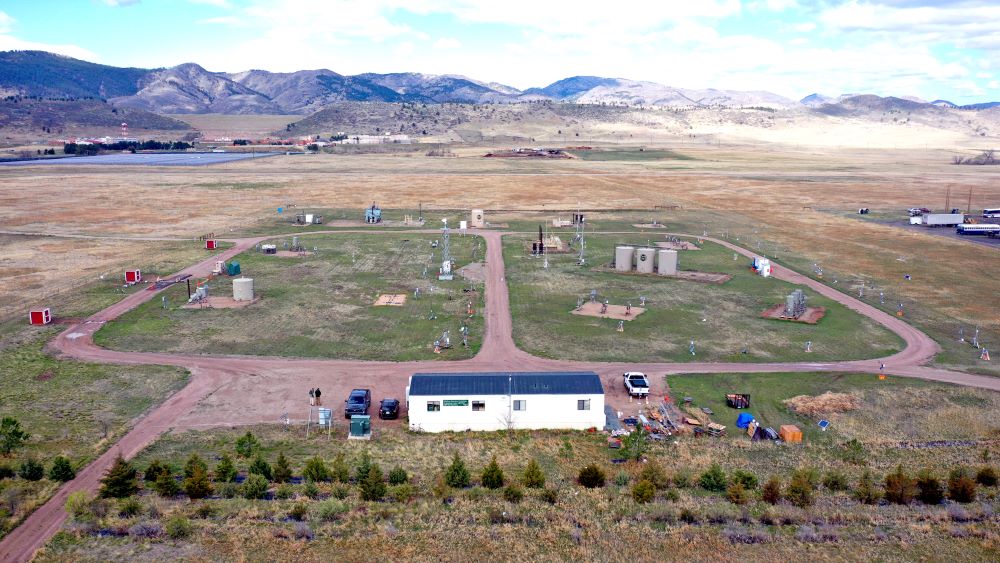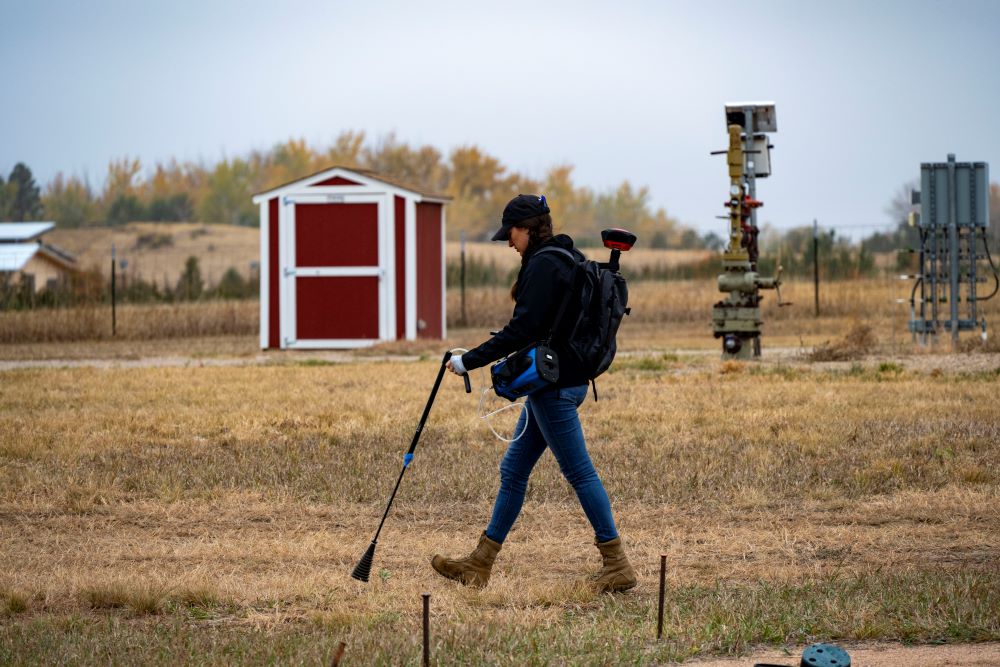A new $25 million award from the U.S. Department of Energy and industry partners is set to enhance the capabilities of the Methane Emissions Technology Evaluation Center (METEC) at Colorado State University.
Over the next five years the funding will be used to modernize testing equipment and further support research collaborations between industry and academia working to reduce methane leaks during production of natural gas. Of the total funding announcement $20 million comes from the DOE with another $5 million in matching funds coming from industry.
Natural gas is widely seen as a bridge fuel to low-carbon energy. Compared to coal, natural gas releases less carbon dioxide into the atmosphere. A national shift based on that dynamic has led to a reduction in carbon dioxide emissions from U.S. power plants of about 35% since 2005, according to the Congressional Budget Office.
However, natural gas is primarily made of methane, which can escape from production and transport systems. Because methane is itself a powerful greenhouse gas contributor, even small leaks can reduce the benefits of natural gas as an alternative fuel source to address climate change.


METEC Director Dan Zimmerle and his research group have been working with stakeholders in this sector since 2012. The center’s testing facility, located just west of Fort Collins, was constructed in 2017 and mimics real-world conditions for an oil and gas facility in terms of layout and equipment – creating a unique, safe environment for testing leak detection systems across various weather conditions. That research has become key to reducing emissions and complying with new regulations in the U.S. and abroad, said Zimmerle.
“There is a tremendous need in the industry right now for support in method development and data collection to improve performance. This award from the DOE speaks to that need as well as our mission as a center directly,” Zimmerle said. “The planned upgrades will further enable testing across the natural gas supply chain from production to end use.”
The funding is part of a larger DOE effort to expand the regional footprint of field-testing sites like METEC across the country. The agency hopes regional-specific testing will help quantify and improve emissions monitoring approaches to account for variations in infrastructure design, environmental conditions and facility type.
Specifically, METEC’s capabilities will be updated to support testing at onshore midstream (gas transmission) facilities as well as offshore facilities where test conditions can differ significantly. Funding will also be used to help develop portable test systems, improve modeling and data collection capabilities, and support testing of methane-sensing satellites.
Ethan Emerson, a METEC research scientist, added that the funding will also support development of repeatable protocols for testing leak detection systems as well as ongoing coordination efforts to standardize testing solutions.
“We need broad industry engagement to update testing protocols – such that they are representative and produce data products relevant to all stakeholder groups,” said Emerson, who is leading that part of the project. “Testing needs to reflect the way leak detection and quantification solutions are being used in the field.”
METEC is a part of the CSU Energy Institute, which helps accelerate interdisciplinary research activity across the energy and climate spectrum. Institute Executive Director Bryan Willson said work through the center showcases the need for interdisciplinary approaches and solutions for global issues in this space.
“METEC is one of the most respected and active organizations in the world when it comes to validating methane solutions; the Energy Institute has relationships with industry partners and the environmental community that span three decades,” said Willson. “This funding will help us further join with partners in Colorado, across the U.S. and around the globe on this pressing need to reach climate goals.”
Zimmerle said the center’s website describes all of the ongoing research activities and encouraged anyone working in the field to connect with the team going forward.
“We are eager to expand partnerships with industry and collaborate with academic researchers and nonprofits in areas like data collection, interpretation and processing,” Zimmerle said.